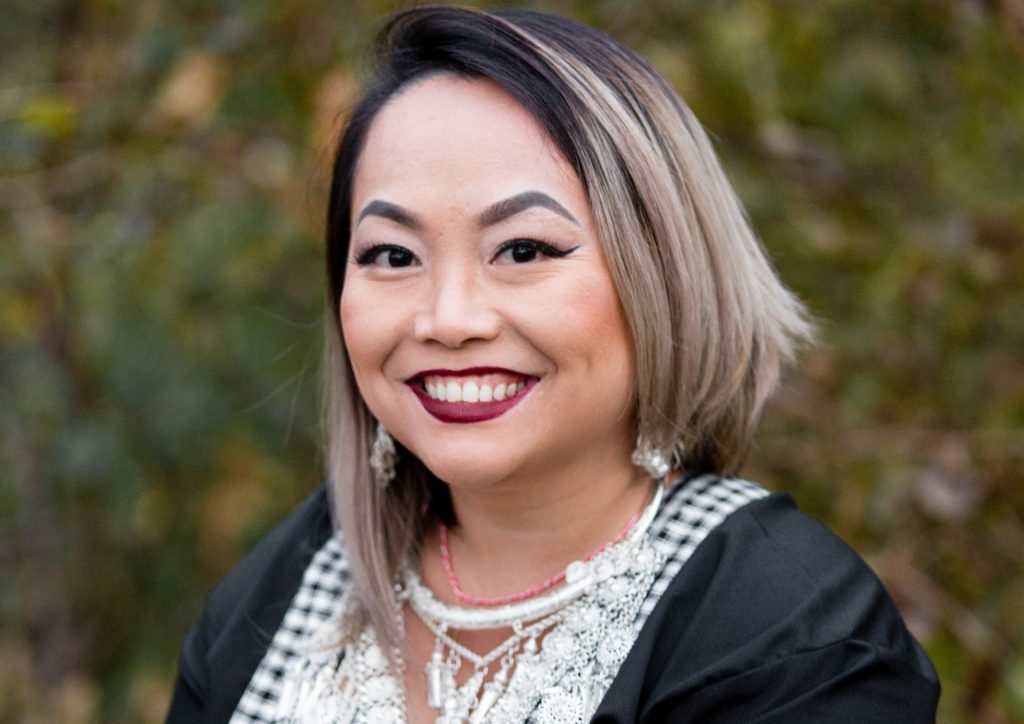PaKong Lee remembers the seizure that led to her epilepsy diagnosis. It marked a change in her childhood as the memories she looks back on are in doctor offices instead of on the playground. Her elementary school years included multiple doctor visits, EEG’s, and blood draws. In addition to visits to a neurologist, PaKong’s family, who immigrated to the US in the 1990’s as refugees, held traditional Hmong values and beliefs when it came to Western medicine, treatment, and seizures.
“My family’s view on Western medicine back then is not like today. Sometimes I was told not to take medication because my parents did not believe in the efficacy of psychotropic medications. It took a really long time for me to understand my parents’ behavior and belief in accessing Western medicine and treatment. This is important because of our longstanding cultural beliefs and traditions in Shamanism. Traditionally, Hmong believe that an illness has a spiritual cause and when someone is sick or not well, we first rely on a shaman (txiv neeb) to perform healing ceremonies to help aid the sick back to health. Essentially, if the Shaman can heal or retrieve your lost spirit, then your symptoms will go away. Today, Hmong people still rely on the cultural practices of shamanism, but are more open to Western medicines and seek that as an alternative route,” says PaKong.
As she continued visiting her neurologist and trying different medications, PaKong eventually found the right combination that “maintained” her epilepsy. At this point, she was still torn between the best way to move forward in her treatment, and as a teenager was dealing with other life changes.
“High school was stressful. It was stressful in the sense that I was a high school student trying to navigate the high school life—demands on homework and classwork expectations. On top of that, I was the oldest child and a Hmong daughter, so I had other expectations and roles to fulfill. It was in high school that I had my first full bloom seizure at school.”
Before this, PaKong was silent about her epilepsy with friends and people outside her family. Within her family, it was only talked about as part of her spirit and was left at that. It was because of cultural barriers to accessing healthcare that made it very difficult to receive the support she needed to help her heal. PaKong only accessed services from doctors, even though she wished for more support and understanding from her medical providers.
“As I have gotten older and reflect back, now knowing what my triggers are, this episode happened because of the multiple stressors I was encountering. My episode in high school was the turning point for me. I decided I valued and respected the Hmong traditions and practices but also understood the science behind a person being epileptic. Coming to terms with that, I started to be more open at the end of my senior year in high school with people I was close to,” says PaKong.
The struggles of dealing with epilepsy are tough, especially when you’re doing it alone as a teenager. In high school, PaKong reached out to the Epilepsy Foundation and didn’t have a positive experience, which made her feel hopeless. She then advocated for herself by participating in events and being active in the community. Since then, even though she leads her own Rise Above Seizures Walk team, she hasn’t found a solid relationship with the foundation. Today, as an adult, she has to pick and choose who she can talk to about epilepsy.
“It’s a struggle, as epilepsy still has a stigma in our society, so my goal of being able to have a real conversation about anything relating to epilepsy is not quite there. I need a safe and no judgment community. I have people who will listen to me but I know that they won’t always understand.”
PaKong has had many internal struggles with her diagnosis of epilepsy, yet she has followed many of her goals in life – being the first in her family to graduate from college, serving with the PeaceCorps, living alone, having a successful career, and raising a healthy family. However, having epilepsy is still part of her identity.
“There are many layers with epilepsy and I want a space that I am able to open up without judgment – especially when my cultural practices and beliefs add an additional layer of complexities. It’s hard to find the right community of people who understand epilepsy and being Hmong.”
